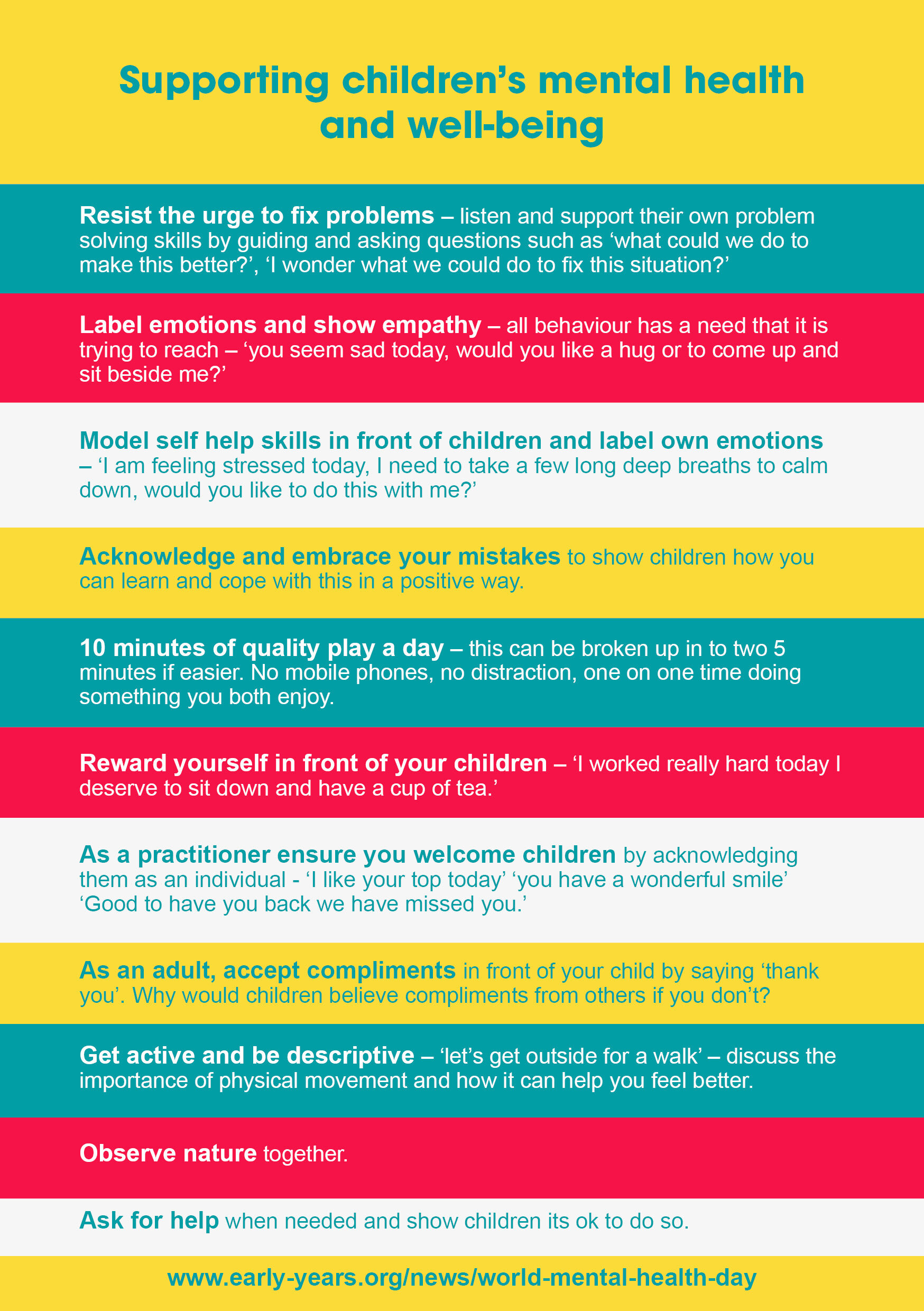World Mental Health Day
As we celebrate World Mental Health day on Saturday 10 October 2020, Early Years has developed useful tips and activities to help you support children and young people’s mental health and well-being.
Whether you are a childcare practitioner, a parent or guardian, supporting children to support themselves in times of stress or worry, can be a lifelong skill and can help to build resilience.
So how can we support ‘bounce back’ ability in children?
Firstly, it would be important to consider how you are you feeling and what you should do to be able to ‘top yourself back up’. Focusing on your own mental health and well-being and ensuring you are taking some measures to support yourself can have a positive effect when trying to look after others.
For more resources please view the Public Health’s ‘TAKE 5’ steps to well-being that has a focus on looking after your mental health during the coronavirus (COVID-19) pandemic.
Supporting children’s mental health and well-being
Resist the urge to fix problems – listen and support their own problem solving skills by guiding and asking questions such as ‘what could we do to make this better?’, ‘I wonder what we could do to fix this situation?’
Label emotions and show empathy – all behaviour has a need that it is trying to reach – ‘you seem sad today, would you like a hug or to come up and sit beside me?’
Model self help skills in front of children and label own emotions – ‘I am feeling stressed today, I need to take a few long deep breaths to calm down, would you like to do this with me?’
Acknowledge and embrace your mistakes to show children how you can learn and cope with this in a positive way.
10 minutes of quality play a day – this can be broken up in to two 5 minutes if easier. No mobile phones, no distraction, one on one time doing something you both enjoy.
Reward yourself in front of your children – ‘I worked really hard today I deserve to sit down and have a cup of tea.’
As a practitioner ensure you welcome children by acknowledging them as an individual - ‘I like your top today’ ‘you have a wonderful smile’ ‘Good to have you back we have missed you.’
As an adult, accept compliments in front of your child by saying ‘thank you’. Why would children believe compliments from others if you don’t?
Get active and be descriptive – ‘let’s get outside for a walk’ – discuss the importance of physical movement and how it can help you feel better.
Observe nature together.
Ask for help when needed and show children its ok to do so.
For further reading on how to support children’s well-being visit the book trust’s useful books and resources www.booktrust.org.uk/booklists/c/calming-mindfulness/
“When adults support and encourage young children as they take risks, face obstacles, and grow from failure, young people learn how to bounce back from life’s ups and downs.”

